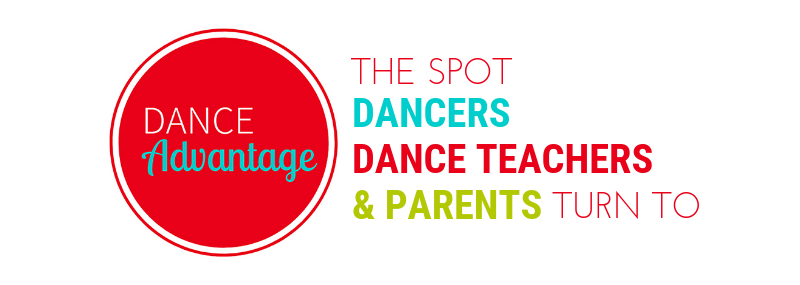What is a professional?
A consummate professional is constructive, positive, is motivated and has the ability to motivate others, displays generosity, and takes the high road. If you want to be seen as a professional in your career and in your life, you must develop strong leadership skills. And leaders are most often defined by their reactions to situations, rather than their actions.

- Image by Stephen Brace via Flickr
When someone makes a mistake
Do you like to be publicly called out when you’ve made a mistake? Neither does anyone else. Professionals resist the urge to be negative, point out a person’s faults, or undermine the authority of another. When it comes to making improvements, true professionals (and true leaders) use their energy to solve problems, not just identify them. They will approach someone with possible solutions to the issue at hand privately or through appropriate channels first. Though it is appropriate to stand up when injustices are being done, a professional recognizes the difference between what is pressing and what is petty.
When there is a need
Professionals have a strong work ethic. They anticipate the needs of others or what needs to be done. They do it even before someone asks or, where appropriate, asks permission before going forward. Anticipating a need sometimes means that you must humble yourself and do what is best for the group or for someone else. Unless asked for input, instructed to do something which is against core beliefs, or truly wanting to clarify and understand the directions given, professionals adhere to the request and later find a private moment to question if necessary.
Anticipating need also applies to time. “To be early is to be on time, to be on time is to be late.” In other words, starting “on time” means that everyone is ready to go the very moment the gathering is supposed to start. Being early ensures this. Inevitably there is something that needs to be done just before beginning, and arriving at the start time will put oneself and everyone else behind. Professionals get there well ahead of time to do what they know they need to.
It is harder to maintain professionalism when the situation directly affects YOU.
When you have a complaint

Early August, even in Pennsylvania where I grew up, is HOT. Members of the marching band faced consequences (usually running laps) for uttering the words “It’s hot” during our summer sessions. Why such a firm stance? Because everyone already knows it is hot. Voicing this complaint only reminds everyone in earshot how miserable they are feeling. As a result, collective energy is spent focusing on the complaint rather than productively pursuing the task(s) at hand. If you are doubting the impact just voicing a complaint has on a group, consider what happens in a dance class when a teacher declares, “Sally, thank you for pointing your toes!” Suddenly pointed feet spread like wildfire throughout the class. This is a positive example of the power of suggestion. Professionals use the power of suggestion to bring a group up rather than down.
When you are corrected
Professionals do not make excuses. As with other requests, if they are offered ways in which they could improve or are reprimanded for inappropriate behavior, a professional accepts the correction (whether they agree or not), tries to consider, apply the suggestion or do better next time, and then moves on. They do not blame unfortunate circumstances or other people for their mistakes. As a result, positive and professional leaders have good things happen to them because they are prepared to take the bad things that happen in stride. They cannot and will not play the victim. They recognize that a negative person creates a negative world around themselves and instead choose to motivate others to join them in their positive outlook.
When you have been wronged
Inevitably someone will disappoint you, hurt you, or do something that is unfair or unjust. It happens. And, sometimes the results are catastrophic, the pain is tremendous, and the offender seems to hold a “Get Out of Jail Free” card. Trust me, everyone faces this at some point in their professional career and/or personal lives. A professional acts with dignity in response to these situations. They recognize that fears and insecurities can damage a person’s ability to think positively, act with generosity, and conduct themselves appropriately. When dealing with someone who is behaving unprofessionally, considering this will help you deal with him/her in a more compassionate manner. You can avoid behaving badly in reaction to their behavior without letting them take advantage of you or the situation.
It is tempting to want to lash out or get revenge, but a true professional does not reduce herself to bad behavior because she knows that this is sure to backfire. For example, if a coworker complains and whispers about a peer at every opportunity and spreads rumors and gossip, they will earn a reputation for being untrustworthy. It does not matter if the complaints and rumors are true, I guarantee that even those that go along or participate in this slander do not trust this coworker. A person who goes about tearing down others is only opening themselves up to the same kind of scrutiny and backstabbing they distributed. No matter what has been done to her, a professional will always be the better person. She will take action through appropriate channels instead of dealing out her own form of justice.
When you are the one who has wronged
As I said before, no one is perfect. Even professionals have bad days. They sometimes do, say, or act in a way that is not only unprofessional but unbecoming. Once in rehearsal for a musical, for which I was not only the choreographer but a leading character, I publicly blew my top at a director. Feeling a responsibility to the cast, essentially my professionalism went out the window for a moment as I outwardly expressed a collective frustration that was (for legitimate reasons) reaching boiling level within the room. Although it got results, as a professional I recognized that I did not handle the situation well and that an apology was in order. After giving the director a few moments, I approached him and calmly apologized for my behavior and that it would not happen again. If I had not performed this simple act, the relationship would have been damaged, resentment would have set in, and I would have lost the respect he held for me. Being mature enough to recognize when one is out of line, apologizing, and then taking responsibility for the outcome is essential for someone that wants to continue to be viewed as a professional even when mistakes are made.
Leaders and Professionals Embody Generosity
The ultimate professional is a collaborator and contributor who brings out the best in others because instead of focusing on “I” and “me”, he concentrates on “we” and “us.”
- He is generous with his gifts, generous with his time, and generous in spirit. He is easy to collaborate with because he communicates with kindness.
- A professional wants everyone around him to be their best and helps them to do so by being supportive and encouraging.
- When a colleague is struggling, he does not belittle or put this person down. He is aware enough to look for moments in which help might be offered that will not be embarrassing to the individual or interrupt the rest of the group.
- He recognizes that help does not always mean showing or telling another how to do something, but rather an encouraging smile or a word or two to lighten the person’s mood and frustration level is most helpful.
- He does not lie to make another person feel good. A professional offers straight-talk but avoids hurting other people in the process.
- He responds with humor, sensitivity, and tolerance even under difficult circumstances.
Self-Awareness
In addition to awareness of one’s surroundings and of other people, a professional must also be self-aware. Generosity can be extended to yourself by understanding your strengths, weaknesses, and limitations. No one is perfect, and a confident and self-aware person does not expect perfection of himself or of anyone else, rather he does his very best, recognizes where the strengths of others can fill in the gaps, and allows them to shine as they do their part. It is alright for a professional to ask and expect others to do their best, but he will offer encouragement and lead others through example, to fulfillment of their full potential.
Dr. Tim Lautzenheiser, a leadership coach I encountered during my high school years often expressed that “you are only worth what you give away, and you can only give away what you have.” To be generous in spirit, improve what you have to give by taking responsibility for what YOU know and who YOU are… and then give it away.
Are you too young to be viewed as a professional?
No. I have met both very unprofessional people who have spent years and years in their career and amazingly mature children who act professionally whether they get paid to do so or not.
It is not always easy to conduct oneself as a professional but it leads to more positive and fulfilling experiences overall.
The Ultimate Question:
Would YOU want to work with YOU?
If not, take responsibility for improving your actions and, perhaps more importantly, your reactions to the situations and people in your work. I guarantee your new outlook will influence the actions of the people around you and their reaction to you. You will be regarded as the professional you want to be.
Nichelle Suzanne is a writer specializing in dance and online content. She is also a dance instructor with over 20 years experience teaching in dance studios, community programs, and colleges. She began Dance Advantage in 2008, equipped with a passion for movement education and an intuitive sense that a blog could bring dancers together. As a Houston-based dance writer, Nichelle covers dance performance for Dance Source Houston, Arts+Culture Texas, and other publications. She is a leader in social media within the dance community and has presented on blogging for dance organizations, including Dance/USA. Nichelle provides web consulting and writing services for dancers, dance schools and studios, and those beyond the dance world. Read Nichelle’s posts.


